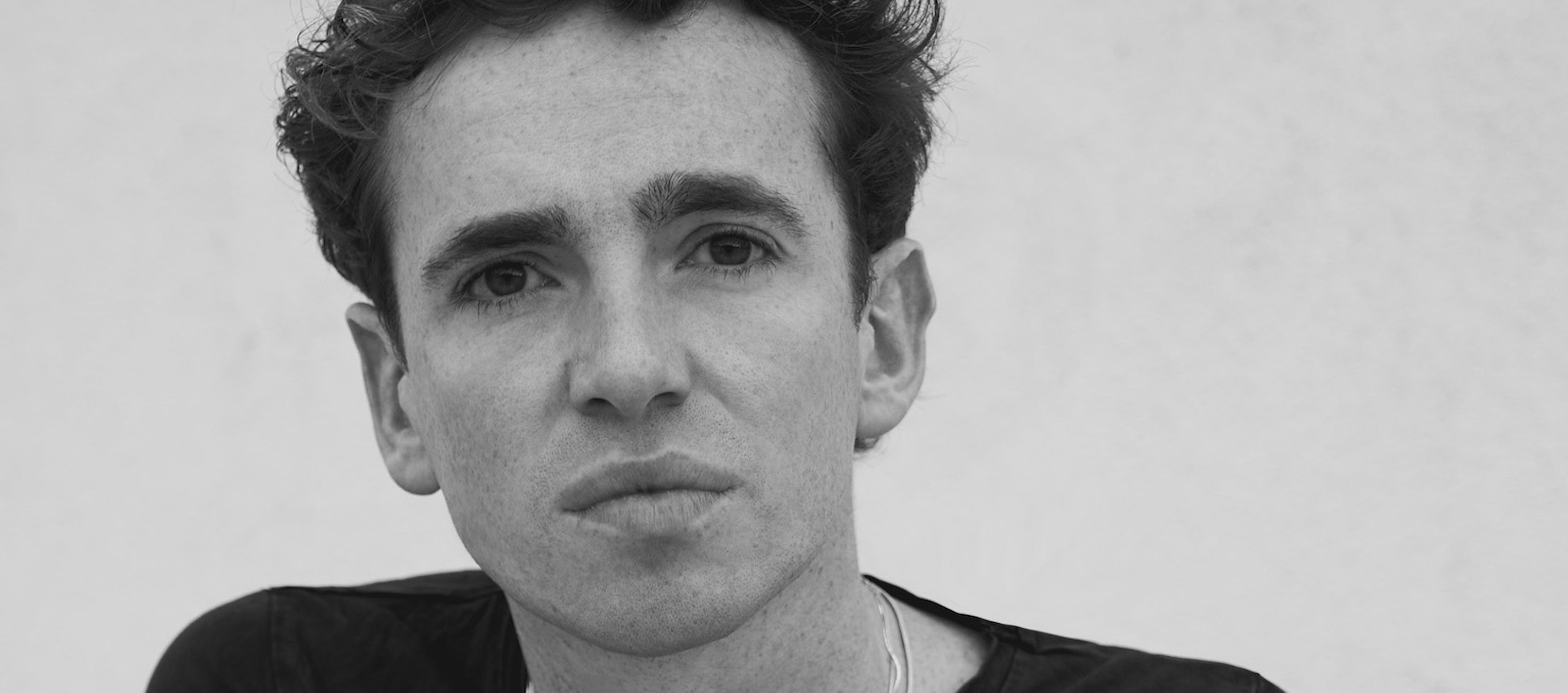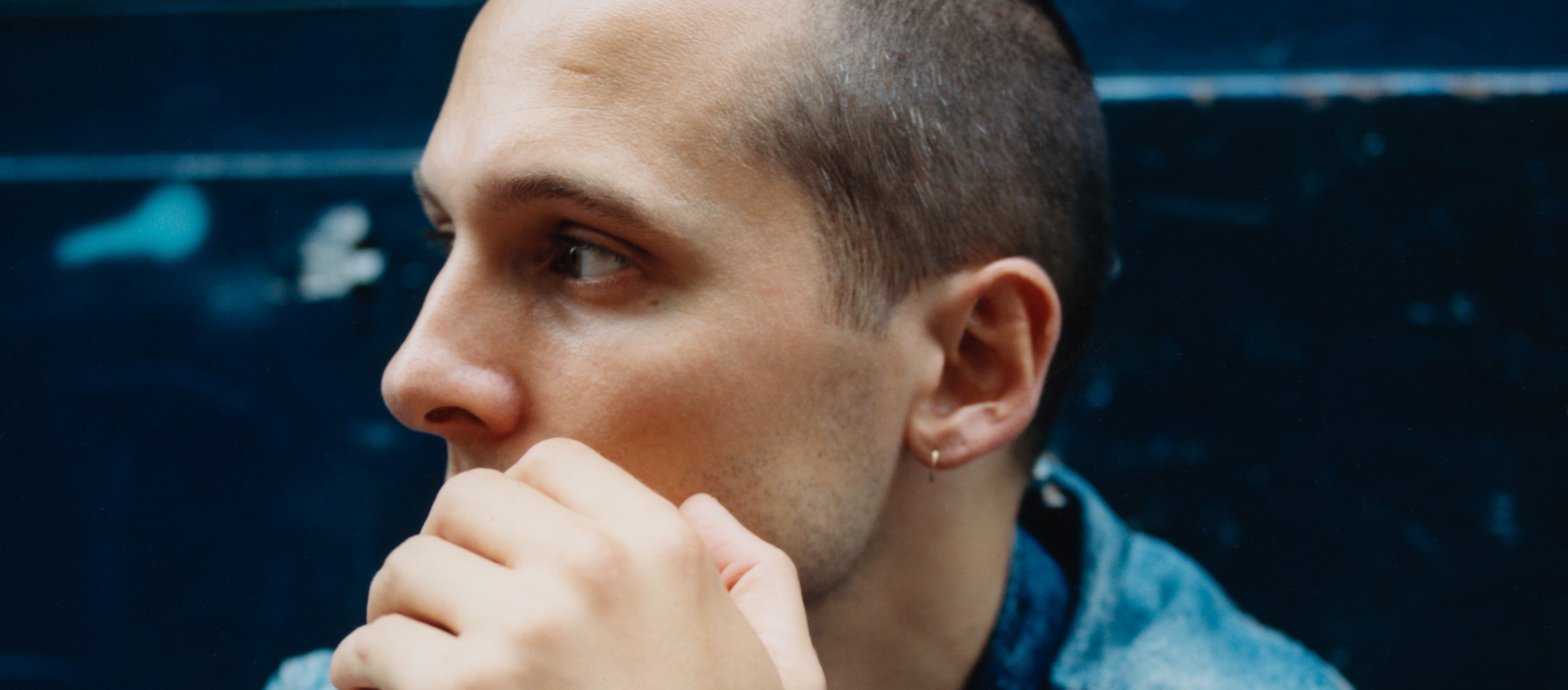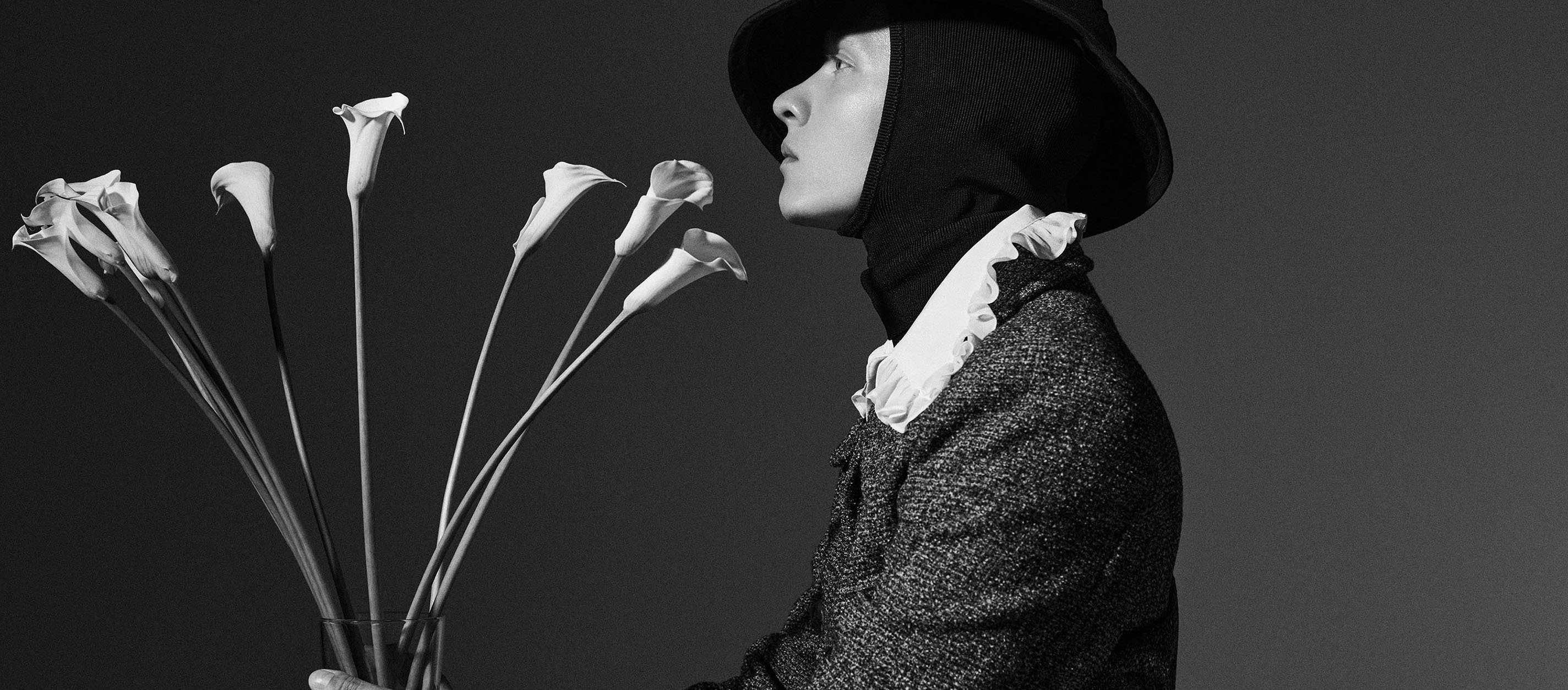The designer’s recontextualised take on Americana and femininity has made his brand an indispensable staple of the fashion crowd. However, in 2025, with one slogan T-shirt, it became an engine for solidarity, too.
By the last day of London Fashion Week, editors, stylists and show guests are already limbering up for the fortnight-long endurance test of Milan and Paris. They might be nursing a hangover, and they’re certainly sleep-deficient. For Conner Ives – the New York-hailing 29-year-old who has soared to become one of London’s buzziest design talents in recent years – it was in these dwindling final hours that his SS26 collection, On Pop, was tasked with turbocharging proceedings this September. However, a favourite of the 2020s’ pre-eminent It-girls and a BFC Foundation Award Winner, if there was anyone up to the job, it was him.
Cue a runway cast of the most hypnotic characters from the intersection of pop and digital culture – spanning everyone from viral rapper Cortisa Star, model and body diversity activist Alva Claire and fashion journalist Osman Ahmed. Marched down the runway to the transcendent pop sonics of the likes of Robyn (“Dancing On My Own”), delicate dresses appeared in highlighter hues, before a scarlet evening gown, gathered hem skirts and a jingling black sequin dress made from upcycled leather. It acquired the favour of the front row quicker than they’d downed their espressos that morning, with whoops, cheers and applause meeting Ives and his models as they took their final bows.
“After a show, I’m an atomic bomb, you could not put me out with a tranquiliser,” he tells me on video call a few days later. “I’m so off the walls because it just feels so great to see that fantasy come to life.” Ives, joined by his wire-fox terrier Rex, is evidently still riding the high. “This was the first season where, rather than looking at the images the next day and being like, ‘That belt was wrong’ or ‘We should have done sunglasses there,’ I [thought], ‘Okay, we did it. We got there in the end.’”
“With each season, you get a little bit more confident with your vocabulary, because you’re building a world as well, and I think another season provides you more to build on. You have more of a foundation to work from,” he says. It’s a quiet confidence that’s grown across the six collections he’s shown since his 2022 schedule debut, as well as on his odyssey from a childhood of fashion dreams to enrolling in Central Saint Martins in 2014. Moving to study at the iconic British institution from Bedford, New York, he graduated with a BA in Womenswear before founding his namesake label in 2020, quickly known for reframing Americana with a particular focus on sustainable practice.
On Pop only added to what has become a blockbuster 2025 for Ives. It started in February with his Autumn/Winter 2025 collection, exploring the themes of escapism in the wake of troubling times. At the end of the show, he emerged wearing a white graphic T-shirt emblazoned with three simple words printed using heat transfer paper the night before – ‘Protect the Dolls’. In the wake of increased attacks and hostility towards the trans community – including a swathe of anti-trans policy changes in his home country, and weeks shy of a UK Supreme Court ruling that the definition of a woman in equality law was based on biological sex alone – it was a mark of solidarity with a community when they needed it most. (The term “Dolls” is a nod to the empowering label used self-referentially by the trans community, with roots in ballroom culture).
Ives has donated all profits from the £75 tees to Trans Lifeline, an American charity which, among several services, provides a peer-support phone line for trans people in crisis. As of the On Pop show date, the tally of proceeds was nearing half a million pounds, supercharged by the T-shirt’s presence on the backs of some of the world’s most illustrious stars – Tilda Swinton, Troye Sivan, Madonna, to name but a few. Pedro Pascal wore it twice in April, both to his 50th birthday party and the UK premiere of Thunderbolts. Ives now separates his brand’s life story into two parts: before and after T-shirt.
“I just can’t even really parcel it all together now, because it was such a crazy time in my life,” he admits. “We were working 18 hours a day. We’d put up 1,000 T-shirts in the morning, and they’d be gone by 2pm, and we didn’t know what to do, because we didn’t have a warehouse. We were filling those orders from the studio, and no one could really understand what we were going to do at that time. So it was wild, and I really think it was the biggest challenge ever. But with the biggest reward and payoff I had ever seen,” he says.
“Because of this partnership with Conner through the ‘Protect the Dolls’ shirts, a pathway of solidarity and support was created,” Dom, a development manager at Trans Lifeline, tells me via email. “It has manifested in a tangible increase in our ability to do our work. We have been able to hire additional operators, increasing our hotline capacity by 75% during call hours.” The organisation is 100% trans-run. “The reality of decreased access to stable employment as hostility increases in our work and educational spaces is something trans people face on a daily basis,” Dom continues. “In working with Conner, we have been able to ensure that more trans people can stay employed, have access to healthcare and build a life.”
I didn’t see this as political anymore. I saw it more as something that really made me uncomfortable as someone who has a lot of trans friends.
The impact of Ives’s “Protect the Dolls” T-shirt came at a time when he was questioning his place in the industry, as the post-pandemic optimism and promise of change (in terms of sustainability) began to wane. He has previously expressed a desire to keep politics and fashion separate. And, despite the assertions of a political class and media hellbent on turning queer lives into discourse, he doesn’t feel that stance was compromised by the T-shirt’s creation. “I didn’t see this as political anymore. I saw it more as something that really made me uncomfortable as someone who has a lot of trans friends and is living outside of their home country. I think I really struggle sometimes with the concept of my American identity and what that means, because I built a lot of this brand around these kinds of cliché ideals of America and Americana,” he says, revealing an admiration for the American entrepreneurial spirit and a simultaneous distaste for the darker divisional attitudes present in its society.
“I love this idea that you can maybe make [life] what you want it to be, but that also comes from a place of huge privilege that I hold. I think the separating the politics of it didn’t even really occur to me, because it was just so second nature, and also the attacks feel so evil. I don’t think there’s any argument here. There’s no argument for anti-trans positioning.”
Ives’s quickness to clarify that the T-shirt was designed out of human compassion rather than politics reflects how he approaches his brand and where he wants to take it. He sees Conner Ives as a lifestyle label, citing Ralph Lauren, Donna Karan, and Halston as inspirations, hailing their ability to build worlds from the ground up and for their defining mark on American fashion.
“I think that Conner Ives is kind of an experiment to figure out what the future of lifestyle design means,” he says. The exciting part is that Ives would appear to be only beginning to bring his full vision of a modern American dream – albeit based in London – to life. As a designer, his work spans bespoke Met Gala gowns – heiress and model Ivy Getty’s 2024 look made from 300-year-old Chinese tapestry fabrics, for instance – to lace football shorts and, of course, the aforementioned graphic tee. Beyond the garments, few brands like Ives’s could lay claim to building a connection with audiences this decade that so palpably transcended aesthetics.
“In the last six months, I may have found a higher purpose in the community building we were able to do,” he says. “I’ve really struggled with the term community, because I think in a fashion setting, it’s really disingenuous. And I feel like everyone and their mother is saying, ‘We’re building a community.’ So I [thought], ‘At what point is a community just a list of followers?’ I didn’t really know what the term community meant anymore. And the last six months really changed that. I think [for] our first truly big product that really did something to shift the dial, I loved that it wasn’t a fashion item.” Not a capital F fashion item, at least. “And I think that’s maybe a big cornerstone to what I do.”
The “Protect the Dolls” T-shirt wasn’t made in service of Ives’s own professional story. And with the scale and weight of its impact, time to take stock of his achievements, on a personal level, hasn’t been a priority. However, he’s entering the year’s final quarter in reflection. “This is the closest I feel to that fantasy of [being a designer],” he says. “It’s really weird when something like that has lived in your head for 29 years and is all of a sudden real and in front of you. It’s very surreal. I love it.”
Photography
James Anastasi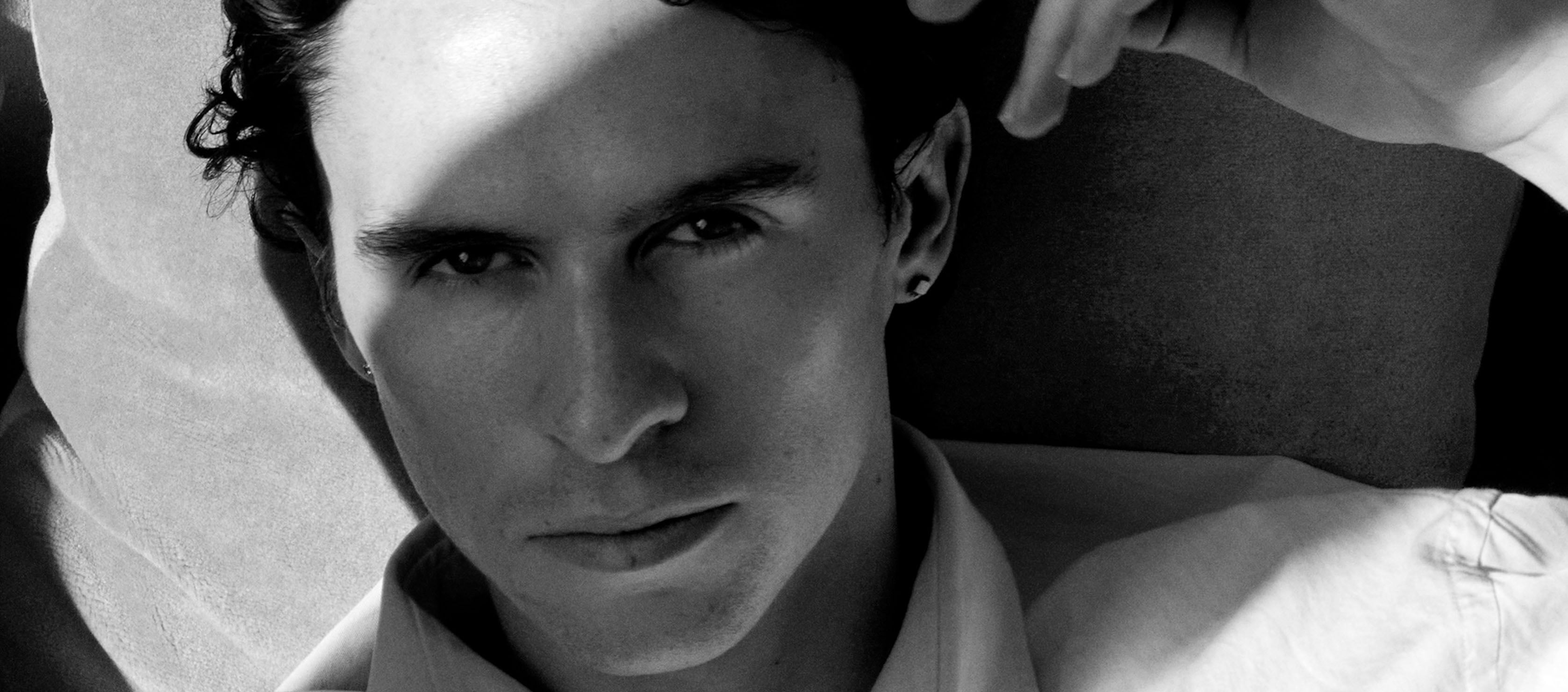
![Picture of “When We Were Developing Series [2], We Were Very Conscious Of The Live Debate About What It Means To Be British”: Tom Hiddleston On The Night Manager’s 2020s Comeback](/_next/image?url=https%3A%2F%2Fadmin.manabouttown.tv%2Fwp-content%2Fuploads%2F2026%2F02%2Fdigsfo-768x338.jpg&w=3840&q=85&dpl=dpl_BAn7NxyHJaiEdTs7qU44Q7jEsgp7)
![Picture of “[The Bridgerton Press Tour] Is Like Being On Some Sort Of Hallucinogenic Drug”: Luke Thompson Is Next In Line](/_next/image?url=https%3A%2F%2Fadmin.manabouttown.tv%2Fwp-content%2Fuploads%2F2026%2F01%2FLUKE-THOMPSON-hero-768x339.jpg&w=3840&q=85&dpl=dpl_BAn7NxyHJaiEdTs7qU44Q7jEsgp7)
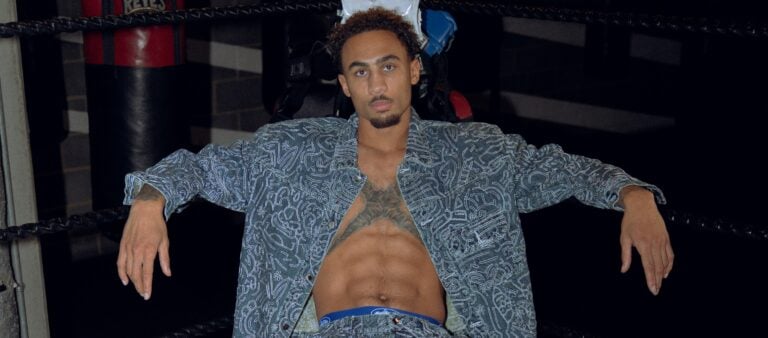
![Picture of “[Whether Photographing] A Dustman Or The Queen, I Will Try My Best – But, Naturally, The Queen Was A One-Off”: David Montgomery On Capturing Icons](/_next/image?url=https%3A%2F%2Fadmin.manabouttown.tv%2Fwp-content%2Fuploads%2F2025%2F12%2FDM-Hero.jpg&w=3840&q=85&dpl=dpl_BAn7NxyHJaiEdTs7qU44Q7jEsgp7)
